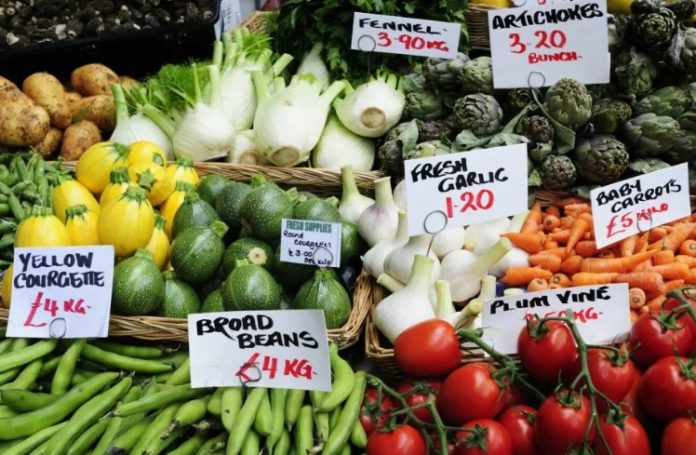The results of a recent survey showed that the UK was more expensive than almost all countries, but inflation on some products is falling, INews reports.
Food prices in UK supermarkets in 2023 were much higher than in Spain, Italy, Germany and the Netherlands. However, falling house and energy prices are gradually starting to bring down the inflation rate for some food items.
Consumer analysts Circana have calculated the total cost of a basket of staple foods in six countries. This left the UK as the second most expensive at £20.49 in June, with Germany the cheapest at £17.62 and France the most expensive at £24.36.
Spain ranked just below the UK at £20.28, with the Netherlands in fourth place at £19.78, followed by Italy at £19.34.
The Office for National Statistics said UK inflation fell to 4.6 per cent in October, down from 6.7 per cent in September, the lowest in two years. Households are hoping prices will stabilise in 2024, after house prices hit the lowest level of the consumer price index since record-keeping began in 1950 and gas and electricity bills also fell, according to INews.
The June survey, conducted by Circana in partnership with BBC News, included a range of food and non-food items. It found that cheese, pet food, sugar and toothpaste cost more in the UK than almost every other country.
Butter and margarine at £2.44 was also more expensive in the UK compared to £1.84 in Germany, £2.02 in Spain and the Netherlands, £2.12 in Italy and £2.29 in France. Cheese was second most expensive in the UK at £2.21, slightly below Spain at £2.31 but above France at £2.19, the Netherlands at £1.37, Germany at £1.55 and Italy at £1.83. Baby food was also the second most expensive in the UK at £2.28 – more expensive only in France at £3.17.
Rising inflation has triggered a sharp rise in the price of staple foods such as milk, bread and eggs. The study found that in the UK, bread costs an average of £1.22, milk £1.55 and eggs £1.90.
The slowdown in UK inflation has led to lower price rises for foods such as rice and pasta, but not for all goods. According to official figures, inflation jumped for tea, olive oil, potatoes and other goods. For example, inflation for olive oil accelerated by 50.2 per cent between September and October, tea rose by 15.1 per cent and coffee by 9.5 per cent, INews reports.
The war in Ukraine and vegetable shortages in the UK are still adding to pressure on food prices, and UK household budgets are being squeezed as overall food prices remain around 19 per cent higher than a year ago.
The European Central Bank (ECB) has raised interest rates to try to bring price rises under control. The annual inflation rate in countries using the euro is estimated at 2.4 per cent in the 12 months to November, down from 2.9 per cent in October and 4.2 per cent in September. This is the lowest level in more than two years.
